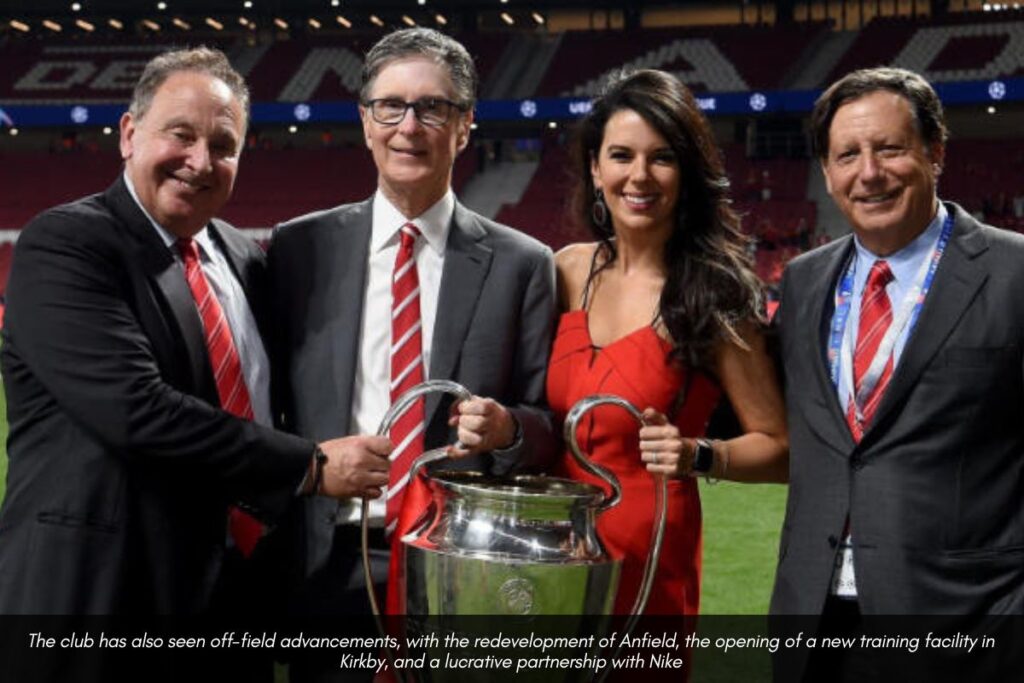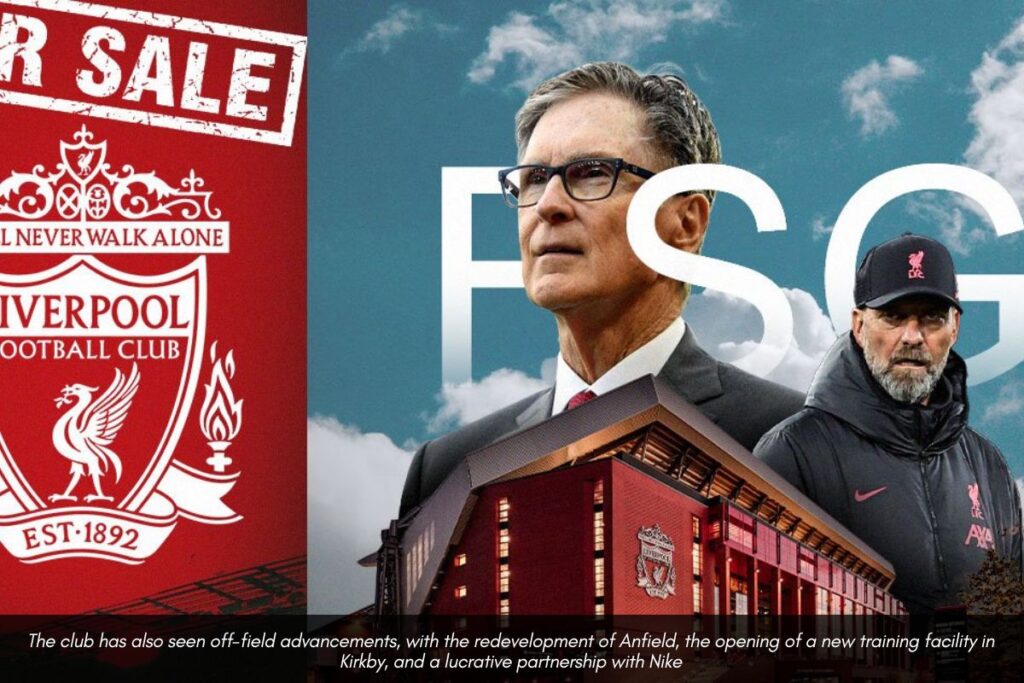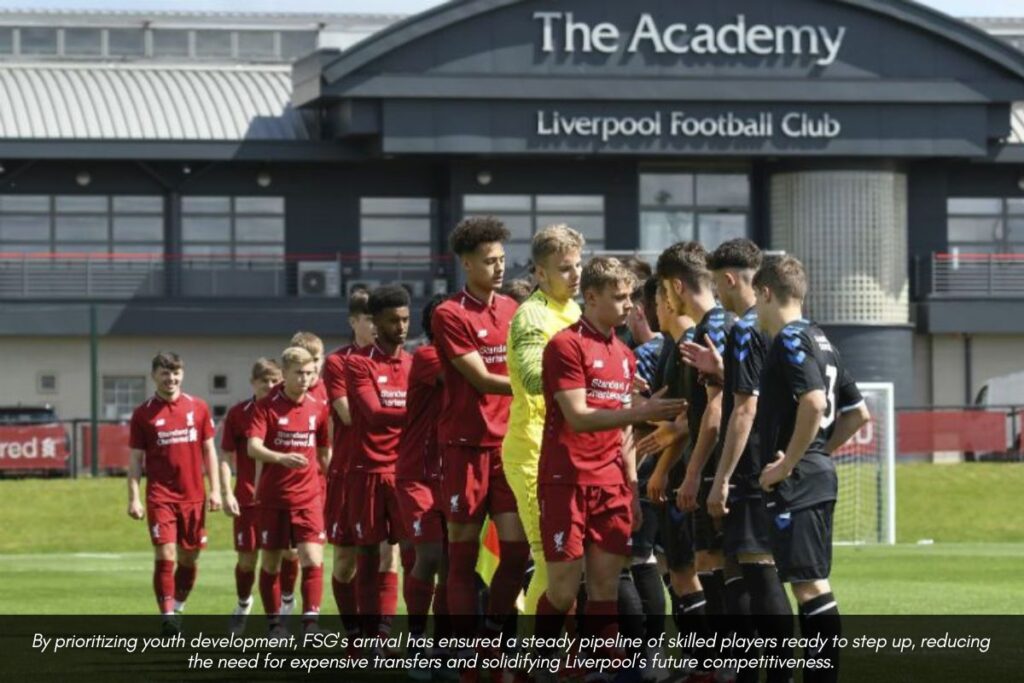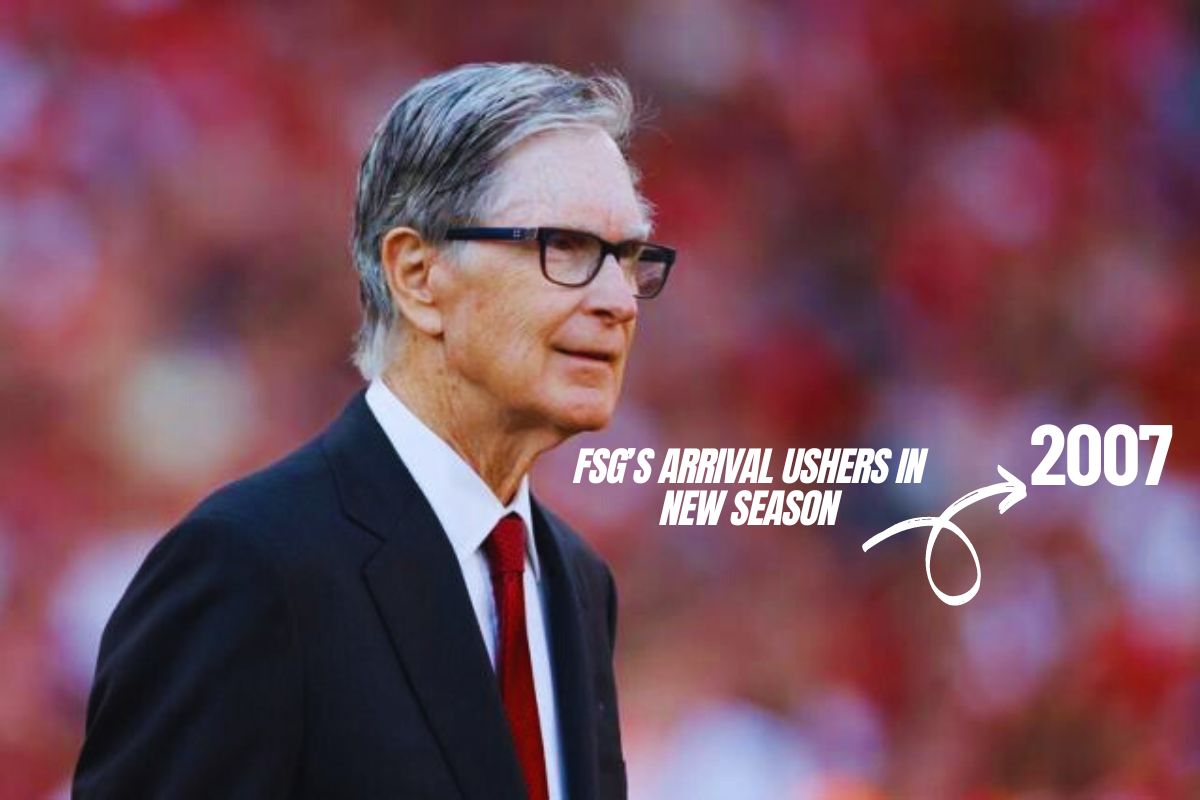Before FSG’s arrival, Liverpool FC faced turmoil under Tom Hicks and George Gillett, nearly reaching financial ruin. The chaotic period left the club on the brink of administration. Hicks and Gillett’s tenure, marked by financial mismanagement, saw the club amass significant debt and become the subject of ridicule. Their promise to build a new stadium within 60 days of their 2007 arrival proved empty, leading to anger and uncertainty among fans.
The club’s dire situation culminated in a legal battle in 2010, where Hicks and Gillett’s ownership was challenged. Fenway Sports Group (FSG), then New England Sports Ventures, emerged as the potential saviors. On October 15, 2010, FSG purchased Liverpool for £300 million, a pivotal moment in the club’s history. Hicks labeled the deal an “epic swindle,” but the purchase was crucial for Liverpool’s revival. Initially, FSG’s tenure was met with skepticism and criticism, particularly regarding their limited transfer budget and ticket pricing decisions.
However, nearly a decade later, FSG’s arrival transformed Liverpool from a struggling entity into one of the world’s premier football clubs. The recruitment of manager Jurgen Klopp, sporting director Michael Edwards, and the contributions of club director Michael Gordon have been instrumental in this turnaround. Under FSG, Liverpool secured significant achievements, including a second-place Premier League finish in 2018/19, their sixth European Cup, and a long-awaited 19th league title in the 2019/20 season. The club has also seen off-field advancements, with the redevelopment of Anfield, the opening of a new training facility in Kirkby, and a lucrative partnership with Nike. From a £300 million purchase, Liverpool’s value soared to around £2 billion by the end of the decade.

FSG’s arrival and leadership have been transformative, guiding the club from financial instability to setting new benchmarks in football. Their arrival in 2010 marked a decisive turning point, steering Liverpool back to its rightful place at the top of the footballing world.
Financial Stability and Growth
When Fenway Sports Group (FSG) acquired Liverpool FC in October 2010, the club was on the verge of financial collapse. Tom Hicks and George Gillett had left Liverpool saddled with substantial debt, which threatened the club’s future. FSG’s arrival came with an immediate priority to stabilize Liverpool’s finances and lay a foundation for sustainable growth. FSG began by restructuring the club’s debt, converting short-term liabilities into long-term debt, and securing better financing terms. This move alleviated the immediate financial pressures, allowing the club to operate without the constant threat of administration. The new ownership also focused on prudent financial management, avoiding the risky leveraged buyouts that had plagued previous ownership.
Under FSG, Liverpool experienced significant revenue growth. Key to this growth was the strategic expansion of commercial activities. FSG’s arrival led to the capitalization of Liverpool’s global brand by securing lucrative sponsorship deals. One of the most notable partnerships was the multi-year kit deal with Nike, estimated to be worth £30 million annually, which significantly boosted the club’s revenue. FSG also leveraged the increasing value of broadcasting rights. The Premier League’s global appeal and lucrative TV deals became a substantial source of income. In addition, FSG invested in Anfield’s redevelopment, increasing the stadium’s capacity and, consequently, matchday revenue. The new Main Stand, completed in 2016, added around 8,500 seats, further boosting revenue from ticket sales and hospitality.
Investments and Player Sales
FSG adopted a data-driven approach to player recruitment and sales, led by sporting director Michael Edwards. By investing in promising talents and selling players at peak value, Liverpool optimized their squad’s performance and financial returns. High-profile sales, such as Philippe Coutinho’s transfer to Barcelona for £142 million, provided substantial funds for reinvestment into the squad. FSG’s long-term vision emphasized sustainable growth. They focused on creating a self-sufficient business model where the club’s operations and player investments were funded by its revenue. This approach allowed Liverpool to remain competitive while maintaining financial stability.

Through strategic financial management, commercial expansion, and prudent investment, FSG’s arrival transformed Liverpool from a club on the brink of financial ruin to one of the world’s most financially stable and prosperous football institutions. The result is a sustainable model that supports continued success on and off the field, securing Liverpool’s place among the elite clubs globally.
Comparison with the Previous Ownership
Fenway Sports Group (FSG) and the previous owners, Tom Hicks and George Gillett, had starkly different approaches to managing Liverpool FC, leading to dramatically different outcomes for the club. Hicks and Gillett’s tenure was marked by financial instability and mismanagement. They acquired the club through a leveraged buyout, loading Liverpool with substantial debt that threatened its financial health. Promises of a new stadium and significant investment in the squad were unfulfilled, leading to fan unrest and a lack of trust. Their management was characterized by boardroom squabbles, a lack of coherent strategy, and a failure to stabilize the club’s finances.
In contrast, FSG’s arrival brought a methodical and strategic approach to Liverpool’s management. Upon taking over in 2010, FSG prioritized financial restructuring, converting short-term debt into manageable long-term obligations and securing favorable financing terms. They implemented a sustainable business model, focusing on increasing revenue through commercial deals, stadium redevelopment, and prudent financial management. Key sponsorship deals, particularly with Nike, and the redevelopment of Anfield significantly boosted the club’s income. FSG’s arrival came with an emphasized data-driven approach to player recruitment and sales, optimizing both performance and financial returns. Their commitment to long-term growth and stability contrasted sharply with the chaotic and short-sighted management of Hicks and Gillett, has led to Liverpool’s resurgence as a top-tier football club.
Nurturing Young Talent After FSG’s Arrival
Fenway Sports Group (FSG) has placed a strong emphasis on nurturing young talent through Liverpool’s academy, recognizing the long-term benefits of developing homegrown players. This commitment is evident in their substantial investments in the club’s youth infrastructure, including the new state-of-the-art training facility in Kirkby, which integrates the first team and academy players, fostering a seamless transition for emerging talents.

FSG’s arrival and focus on youth development have produced notable success stories. Trent Alexander-Arnold, a local talent, emerged as one of the best right-backs in the world, playing a crucial role in Liverpool’s recent triumphs, including the Premier League and Champions League titles. Other academy graduates like Curtis Jones and Neco Williams have also made significant contributions to the first team. By prioritizing youth development, FSG’s arrival has ensured a steady pipeline of skilled players ready to step up, reducing the need for expensive transfers and solidifying Liverpool’s future competitiveness.
Commercial Partnerships and Sponsorships
Under Fenway Sports Group (FSG), Liverpool FC has secured several lucrative commercial deals and sponsorships that have significantly boosted the club’s revenue. One of the most notable is the multi-year kit deal with Nike, valued at approximately £30 million annually, plus a percentage of global merchandise sales. This partnership has not only enhanced Liverpool’s financial strength but also expanded its global brand reach. Additionally, FSG’s arrival came with negotiated key sponsorships with Standard Chartered, AXA, and Expedia, among others. These strategic partnerships have played a crucial role in Liverpool’s financial growth and global market presence.
Conclusion
Fenway Sports Group (FSG) has transformed Liverpool FC from a club on the brink of financial collapse into a global football powerhouse. Through strategic financial management, a focus on youth development, and securing lucrative commercial partnerships, FSG has established a sustainable model that ensures continued success on and off the pitch. Key appointments and investments in infrastructure have further solidified Liverpool’s competitive edge. As a result, the club has not only regained its stature in the football world but also set new benchmarks for excellence. FSG’s arrival and leadership marks a decisive and positive turning point in Liverpool’s storied history.
Read all other posts on FSG’s Arrival at Liverpool FC
Find the Latest News on Player Ratings | Transfers | Prematch | Postmatch
Stay tuned for more updates on Liverpool FC Times and Stories. Your thoughts are always welcome in the comments section. Thank you for your continued support!
YNWA (You’ll Never Walk Alone)!
The Liverpool FC Times Team
LiverpoolFCTimes.com
